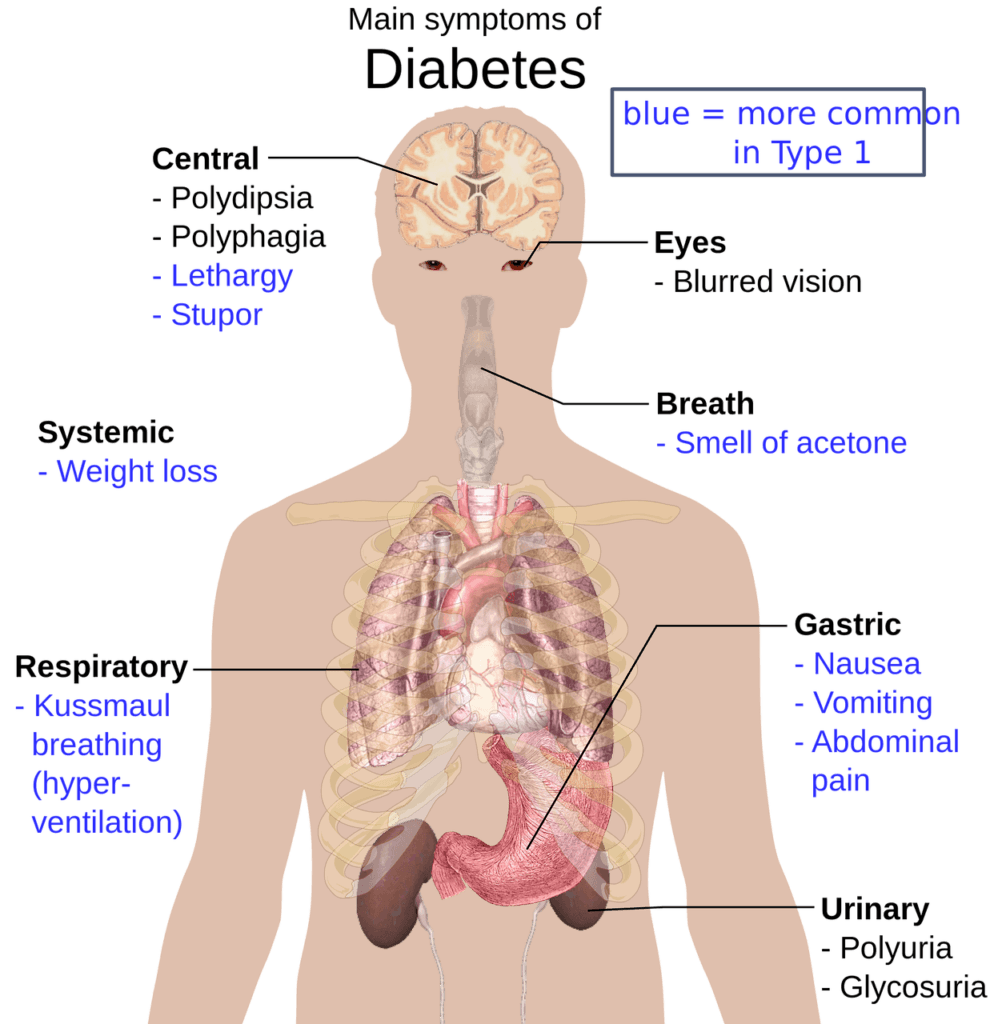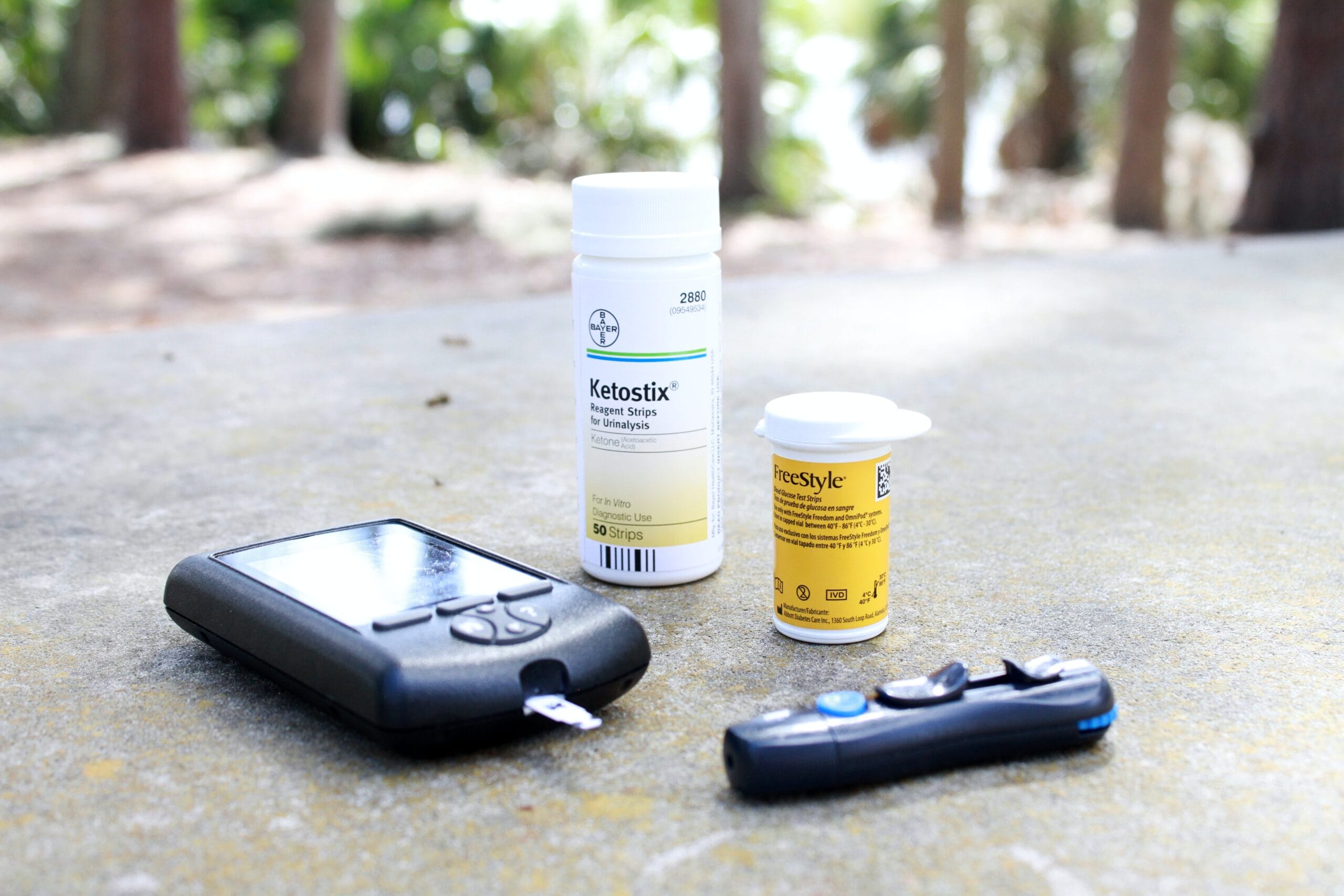In today’s fast-paced and busy world, it’s easy to overlook Diabetes Symptoms. However, ignoring early warning signs can have serious consequences. Diabetes is a chronic condition that affects millions of people worldwide, and early detection is important for effective management and prevention of complications.
In this blog post, we will explore 10 early warning Symptoms of diabetes that should not be ignored. From increased thirst and frequent urination to unexplained weight loss and fatigue, understanding and recognizing these Symptoms can potentially save lives and provide an opportunity for timely intervention and treatment. So, let’s look deep into these warning signs and learn why it is crucial not to overlook them.

10 Urgent Diabetes Symptoms
1. Increased thirst and frequent urination
One of the early warning symptoms of diabetes that should never be ignored is increased thirst and frequent urination. If you find yourself constantly feeling thirsty and needing to drink more fluids than usual, it could be a sign of high blood sugar levels.
This occurs because when blood sugar levels are elevated, the kidneys work harder to remove the excess sugar from the body through urine, causing an increased need to urinate frequently. If you notice that you are waking up multiple times during the night to use the bathroom or find yourself having to go more frequently throughout the day, it’s crucial to pay attention to these symptoms. Ignoring them could be dangerous, as they are often early indications of diabetes.
Excessive thirst and frequent urination are symptoms that occur due to the body’s inability to properly regulate blood sugar levels. When insulin, the hormone responsible for managing glucose in the body, is not functioning correctly or is insufficient, the body is unable to convert glucose into energy. As a result, the sugar remains in the bloodstream, leading to increased thirst and excessive urination as the body attempts to rid itself of the excess sugar.
If you have these symptoms, it’s crucial to see a healthcare professional for the right diagnosis and treatment. Early detection and management of diabetes can help prevent further complications and improve overall health and well-being. Remember, it’s always better to address these warning signs promptly rather than risk the potential dangers associated with undiagnosed and untreated diabetes.
2. Unexplained weight loss
One of the early warning signs of diabetes that should not be overlooked is unexplained weight loss. While weight loss is often associated with positive lifestyle changes or intentional efforts, unexplained weight loss can indicate an underlying health condition, including diabetes. When the body is unable to properly utilize glucose for energy due to insulin resistance or insufficient insulin production, it begins to break down fat and muscle for fuel.
This can lead to a noticeable and unintentional loss of weight. If you find yourself losing weight without changing your diet or exercise routine, it is crucial not to brush it off as a positive development. Instead, it is essential to pay attention to your body and consider the possibility of diabetes. Unexplained weight loss, especially when accompanied by other symptoms such as increased thirst, frequent urination, or fatigue, could be an indication of high blood sugar levels.
If left untreated, diabetes can lead to further health complications, making early detection and intervention crucial. Therefore, if you experience unexplained weight loss or notice significant changes in your body weight, it is vital to consult with a healthcare professional. They can evaluate your symptoms, conduct necessary tests, and provide appropriate guidance and treatment if required. Remember, early detection and timely intervention can help manage diabetes effectively and prevent potential complications, highlighting the importance of not ignoring the early warning symptoms.
3. Fatigue and low energy levels
One of the early warning symptoms of diabetes that should not be ignored is experiencing frequent fatigue and low energy levels. We all have days when we feel tired, but if you find yourself constantly exhausted and lacking energy, it could be a red flag for an underlying health issue, such as diabetes. When your blood sugar levels are not properly regulated, your body may struggle to convert glucose into usable energy.
This can lead to feelings of fatigue and a general sense of low energy throughout the day. You may find it difficult to stay alert and focused, even after a good night’s sleep. If you notice a significant decrease in your energy levels that persists for an extended period, it is crucial to consult with a healthcare professional. Ignoring these symptoms and dismissing them as just a result of a busy lifestyle or lack of sleep can be dangerous.
Early detection and management of diabetes can help prevent further complications and allow for better control of your overall health. It is important to remember that fatigue and low energy levels can be caused by various factors, and diabetes is just one possibility. However, if you experience this symptom in combination with other warning signs, such as increased thirst, frequent urination, or unexplained weight loss, it is vital to get tested for diabetes to rule out any potential health concerns.
Taking charge of your health and recognizing the early warning symptoms of diabetes can help you make informed decisions about your well-being. If you are experiencing chronic fatigue and notice any other symptoms related to diabetes, don’t hesitate to seek medical advice to ensure your health and well-being are properly monitored and managed.
4. Blurred vision and slow wound healing
Two early warning symptoms of diabetes that should never be ignored are blurred vision and slow wound healing. These symptoms can be indicative of high blood sugar levels, which is a common characteristic of diabetes. Blurred vision occurs when the excess sugar in the blood affects the lenses in the eyes, causing them to swell and change shape. As a result, the eyes struggle to focus properly, leading to blurry vision.
This symptom may come and go initially but can worsen over time if left untreated. Another warning sign is slow wound healing. When blood sugar levels are consistently high, it can impair the body’s ability to heal wounds efficiently. Diabetes can impact the circulatory system and damage blood vessels, reducing the flow of oxygen and nutrients to injured areas. This delay in healing can increase the risk of infection and complications.
Even minor cuts or scrapes may take much longer to heal than usual. If you experience these warning signs, it’s crucial to consult a healthcare professional for a thorough examination and proper diagnosis. Ignoring these symptoms could be dangerous as undiagnosed or uncontrolled diabetes can lead to more severe health issues in the long run. It’s essential to prioritize your health and take the necessary steps to manage and treat diabetes effectively.
5. Tingling or numbness in hands or feet
One of the early warning symptoms of diabetes that should never be ignored is experiencing tingling or numbness in the hands or feet. This sensation, known as peripheral neuropathy, occurs because high blood sugar levels can damage the nerves in the body, particularly in the extremities.
As diabetes progresses, the nerve damage can worsen, leading to a loss of sensation in the affected areas. People with diabetes may find that they are unable to properly feel temperature changes, pain, or touch in their hands or feet. This can be extremely dangerous, as injuries or infections in these areas may go unnoticed and untreated.
If you are experiencing tingling or numbness in your hands or feet, it is crucial to pay attention to this symptom and seek medical advice. Your healthcare provider will be able to perform the necessary tests to determine if diabetes is the underlying cause and develop a suitable treatment plan.
Furthermore, it is essential to manage your blood sugar levels through lifestyle changes, such as adopting a healthy diet, engaging in regular exercise, and taking any prescribed medications. By addressing these warning signs and managing your diabetes, you can help prevent further nerve damage and minimize the risk of complications. Remember, early intervention is key in maintaining your overall health and well-being.
6. Recurring infections and gum problems
Recurring infections and gum problems can be early warning symptoms of diabetes that should never be ignored. When blood sugar levels are high, it can weaken the immune system, making it harder for the body to fight off infections. This can lead to frequent infections, such as urinary tract infections, skin infections, and yeast infections. If you find yourself constantly battling these types of infections, it may be a sign that your body is struggling to regulate blood sugar levels.
Additionally, individuals with diabetes are more prone to gum disease and oral health problems. High blood sugar levels provide an ideal environment for bacteria to thrive in the mouth, leading to inflammation, gum infections, and tooth decay. You may notice symptoms such as swollen, red, or bleeding gums, loose teeth, bad breath, or a persistent bad taste in your mouth. It is crucial to pay attention to these symptoms and seek medical advice promptly.
Ignoring recurring infections and gum problems can have severe consequences for your overall health. Uncontrolled diabetes can lead to complications such as cardiovascular disease, nerve damage, kidney problems, and even blindness.
If you are experiencing frequent infections or noticing changes in your gum health, it is essential to schedule an appointment with your healthcare provider. They can perform the necessary tests to determine if diabetes or another underlying condition is the cause of these symptoms. Early detection and proper management are vital in preventing further health complications and maintaining your overall well-being.
7. Changes in skin condition or dark patches
One of the early warning symptoms of diabetes that often goes unnoticed is changes in skin condition or the appearance of dark patches on the skin. One common skin condition associated with diabetes is called “acanthosis nigricans.”
This condition manifests as dark, thickened patches of skin, typically found in the folds and creases of the body, such as the neck, armpits, and groin area. These patches may feel velvety or have a rough texture. If you notice such changes in your skin, it is crucial not to ignore them. Dark patches on the skin can be a result of insulin resistance, a key characteristic of diabetes.
When insulin is not effectively utilized by the body’s cells, it can lead to an increase in the production of skin pigment, resulting in these dark patches. While acanthosis nigricans itself is not harmful, it serves as a visible clue that there might be an underlying health issue, such as prediabetes or type 2 diabetes.
It is important to consult a healthcare professional if you notice any changes in your skin condition, especially if accompanied by other common symptoms of diabetes, such as increased thirst, frequent urination, unexplained weight loss, or fatigue. Early detection and intervention can help manage diabetes effectively and prevent potential complications.
Remember, your skin can provide valuable insights into your overall health. Don’t ignore changes in your skin condition or dark patches, as they could be your body’s way of alerting you to a potential diabetes-related issue. Take charge of your health, and prioritize regular check-ups and screenings to stay informed and proactive in managing your well-being.
To know more about the effect of Diabetes on your skin, click here
8. Mood swings and irritability
Mood swings and irritability can often be early warning symptoms of diabetes that should not be ignored. While many people associate mood swings with hormonal changes or stress, it is important to recognize that these symptoms can also be indicators of an underlying health condition like diabetes.
High and low blood sugar levels can affect your mood and lead to changes in your emotional state. When blood sugar levels are elevated, it can cause feelings of irritability and frustration. You may find yourself becoming easily agitated or snapping at others for no apparent reason. This can be a result of the body’s inability to effectively regulate glucose levels, leading to imbalances in brain chemicals that impact mood.
Conversely, when blood sugar levels drop too low, it can lead to feelings of anxiety, confusion, and even depression. These emotional changes can be alarming and may seem unrelated to your physical health, but they can be early symptoms that your body is struggling to maintain stable blood sugar levels.
Ignoring these mood swings and irritability can be dangerous because they can be symptoms of undiagnosed or uncontrolled diabetes. It is crucial to pay attention to these warning signs and consult a healthcare professional for proper evaluation and diagnosis. Early detection and management of diabetes can significantly reduce the risk of complications and improve overall health outcomes.
If you or your loved ones are experiencing unexplained mood swings or irritability, it is important to take them seriously and seek medical advice. Remember, addressing these symptoms early can lead to timely interventions and better management of diabetes, promoting a healthier and more balanced lifestyle.
9. Unexplained hunger and food cravings
One of the early warning symptoms of diabetes that people often overlook is unexplained hunger and food cravings. If you find yourself constantly feeling hungry, even after eating a meal, it could be a sign that your body is not effectively processing glucose. When your blood sugar levels are high, your body may not be able to produce enough insulin to convert glucose into energy.
As a result, your cells may not be getting the energy they need, leaving you feeling hungry all the time. Additionally, you may also experience intense cravings for sugary or carbohydrate-rich foods. This is because your body is trying to compensate for the lack of energy by seeking out quick sources of fuel.
However, indulging in these cravings can further disrupt your blood sugar levels and worsen the symptoms of diabetes. It is crucial to pay attention to these early warning signs and seek medical advice if you experience unexplained hunger and food cravings, as it could be an indication of underlying diabetes or prediabetes. Ignoring these symptoms can be dangerous as it can lead to complications if left untreated.
10. Conclusion: The importance of recognizing and addressing early warning symptoms of diabetes.
Recognizing and addressing the early warning symptoms of diabetes is of utmost importance. Ignoring these symptoms could lead to severe health complications and risks. By understanding the early indicators and taking proactive steps, individuals can seek timely medical attention and manage their condition effectively.
Diabetes is a chronic disease that affects millions of people worldwide, and early detection can make a significant difference in controlling its progression. It is crucial to be aware of symptoms such as frequent urination, increased thirst, unexplained weight loss, excessive fatigue, and blurred vision. By monitoring blood sugar levels, maintaining a healthy diet, engaging in regular exercise, and seeking medical guidance, individuals can make positive changes to their lifestyle and manage diabetes effectively.
Ignoring the early warning symptoms can be dangerous, as it may result in long-term complications such as heart disease, kidney damage, nerve damage, and vision problems. Early intervention and proper management are key to leading a healthy and fulfilling life with diabetes. Stay informed, listen to your body, and prioritize your health to prevent any potential risks associated with diabetes.


Leave a Reply